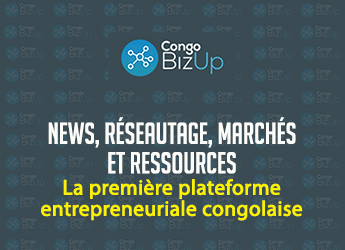Company Secretary

|
OFFRE D’EMPLOI N° 015/SB-RDC/KIN/2019 |
||
|
|
|
|
|
TITRE DU POSTE |
: CompanySecretary |
|
|
DEPARTEMENT |
: CE Office |
|
|
LIEU D’AFFECTATION |
||
|
TYPE DE CONTRAT |
: CDI assorti d’une période d’essai de 6 mois |
|
|
|
|
|
|
A PROPOS DE STANDARD BANK |
||
|
|
||
|
Standard Bank RDC fait partie du plus grand groupe bancaire de l’Afrique en termes de capitalisation boursièredont le siège se situé à Johannesburg. Présente dans 38 pays dont 18 en Afrique,c’est depuis 1992 qu’elle opère au Congo à la suite de l’acquisition d’ANZ Grindlays Zaïre qui existait dans le pays depuis 1973. Standard Bank RDC offre une gamme variée de produits et services par le truchement de ses diverses branches à travers la RDC via un réseau des intermédiaires (banques correspondantes). Nous avons développé une expertise dans la prestation des services liés aux besoins des entreprises minières, multinationales, Nations-Unies et autres organisations internationales opérant en République Démocratique du Congo. |
||
|
|
|
|
|
I. JOB DESCRIPTION |
||
|
|
|
|
|
Links to structures |
||
|
|
|
|
|
Job function* |
CompanySecretary |
|
|
Job family* |
Secretariat |
|
|
Job reports to* |
Country Chief Executive |
|
|
Career type* |
Functional/Specialist |
|
|
|
|
|
|
Contribution |
|
|
|
|
|
|
|
Job purposedescription*
|
The Company Secretary holds a strategic position of considerable influence at the heart of governance operations within Standard Bank Offshore Group (SBOG). The individual provides the necessary support and guidance, advises directors and management (including those of the subsidiary companies) on governance matters, helps the board and committees to function effectively and efficiently as well as adopts the highest standards of corporate governance. He or she must oversee compliance with applicable statutory, regulatory and corporate governance requirements and manage the day-to-day corporate administration of SBOG. The appointment or removal of the Company Secretary is a matter reserved for theboard of directors. |
|
|
Job criticality |
Operationally Critical |
|
|
|
|
|
|
|
|
|
|
Key responsibilities* |
||
|
Output group 1* |
Provide effective and efficient meeting support |
|
Key Activities (what and how) |
|
|
Output group 2* |
Attend to statutory and regulatory requirements |
|
Key Activities (what and how) |
|
|
Output group 3 |
Play a leading role in the good governance of SBOG |
|
Key Activities (what and how) |
|
|
|
|
|
|
|
|
Output group 4 |
Deliver effective stakeholder management |
|
Key Activities (what and how) |
|
|
Output group 5 |
Effective Leadership |
|
Key Activities (what and how) |
|
|
Output group 6 |
Oversight of good corporate governance practice |
|
Key Activities (what and how) |
|
|
Output group 7 |
Ensure compliance with legal and other regulatory requirements |
|
Key Activities (what and how) |
|
|
Output group 8 |
Schedule and Coordinate Exco Meetings |
|
Key Activities (what and how) |
|
|
Output group 9 |
Manage Holdco Shareholders’ Relationships |
|
Key Activities (what and how) |
|
|
Output group 10 |
Manage Company’s Articles of Association |
|
Key Activities (what and how) |
|
|
Output group 11 |
Perform Annual Reporting |
|
Key Activities (what and how) |
|
|
Output group 12 |
Contribute to the strategic and operational planning of the business area |
|
Key Activities (what and how) |
|
|
|
|
|
Output group 13 |
Contribute to effective governance of the business area activities |
|
Key Activities (what and how) |
|
|
Output group 14 |
Work with the technology teams to obtain support for the business unit’s supporting systems |
|
Key Activities (what and how) |
|
|
Output group 15 |
Provide administrative and logistical support to all parts of the business unit |
|
Key Activities (what and how) |
|
|
Output group 16 |
Lead a support team |
|
Key Activities (what and how) |
|
|
|
|
|
|
|
|
|
|
|
|
|
|
|
|
|
II. REQUIREMENTS |
|
|
|
|
|
Qualifications |
|
|
|
|
|
Formal minimumqualification 1* |
Type of qualification: Masters Degree |
|
Formal minimumqualification 2 |
Type of qualification: Masters Degree |
|
Other qualifications, certifications or professional memberships |
ACIS (Chartered Secretary) preferably or ACA (Chartered Accountant) Must have previously been called to the Congolese Bar and must possess a minimum of 15 years post-graduation experience, out of which at least 10 must have been in the banking industry, and at least 3 years on senior manager or equivalent position |
|
|
|
|
Experience |
|
|
|
|
|
Experience required 1* |
Job Function:Company Secretary |
|
Experience required 2 |
Job Function:Compliance |
|
Experience required 3 |
Job Function:Legal |
|
Experience required 4 |
Job Function:Business Support |
|
|
|
|
|
|
|
Behavioural Competencies |
|
|
|
|
|
Behavioural competency 1* |
Competency Label: Adopting Practical Approaches |
|
Behavioural competency 2* |
Competency Label: Developing Expertise |
|
Behavioural competency 3 |
Competency Label: Challenging Ideas |
|
Behavioural competency 4 |
Competency Label: Interacting with People |
|
Behavioural competency 5 |
Competency Label: Making Decisions |
|
Behavioural competency 6 |
Competency Label: Directing People |
|
Behavioural competency 7 |
Competency Label: Empowering Individuals |
|
Behavioural competency 8 |
Competency Label: Showing Composure |
|
Behavioural competency 9 |
Competency Label: Embracing Change |
|
Behavioural competency 10 |
Competency Label: Team Working |
|
Behavioural competency 11 |
Competency Label: Valuing Individuals |
|
Behavioural competency 12 |
Competency Label: Checking Details |
|
Behavioural competency 13 |
Competency Label: Meeting Timescales |
|
Behavioural competency 14 |
Competency Label: Upholding Standards |
|
Behavioural competency 15 |
Competency Label: Completing Tasks |
|
Behavioural competency 16 |
Competency Label: Taking Action |
|
Behavioural competency 17 |
Competency Label: Providing Insights |
|
Behavioural competency 18 |
Competency Label: Exploring Possibilities |
|
|
|
|
|
|
|
Technical Competencies |
|
|
Technical competency 1* |
Competency Label:Written and Verbal Communication |
|
Technical competency 2* |
Competency Label:Business Administration Skills |
|
Technical competency 3* |
Competency Label:Meeting Logistics |
|
Technical competency 4* |
Competency Label:Legal Compliance |
|
Technical competency 5* |
Competency Label:Quality Orientation |
|
Technical competency 6* |
Competency Label:Operational Planning |
|
Technical competency 7* |
Competency Label:Industry Knowledge |
|
Technical competency 8* |
Competency Label:Financial Industry Regulatory Framework |
|
Technical competency 9* |
Competency Label:Legal Administration |
|
Technical competency 10* |
Competency Label:Legal Advisory and Interpretation |
|
Technical competency 11 |
Competency Label:Corporate Legal Services Management |
|
Technical competency 12 |
Competency Label:Contract Management |
|
Technical competency 13 |
Competency Label:Legal Records and Related Systems |
|
|
|
|
Leadership Competencies |
|
|
|
|
|
Leadership Competency 1 |
Competency Label: Leading Courageously |
|
Leadership Competency 2 |
Competency Label: Driving Delivery of Results |
|
Leadership Competency 3 |
Competency Label: Holding People Accountable |
|
Leadership Competency 4 |
Competency Label: Inspiring Performance for Execution |
|
Leadership Competency 5 |
Competency Label: Purposeful Collaboration |
|
Leadership Competency 6 |
Competency Label: Growing Capability |
|
Leadership Competency 7 |
Competency Label: Seeking Deeper Understanding |
|
Leadership Competency 8 |
Competency Label: Influencing Others |
|
Leadership Competency 9 |
Competency Label: Purposeful Collaboration |
|
Leadership Competency 10 |
Competency Label: Customer and Client Focused Innovation |
|
|
|
|
Additional Job Dimensions |
|
|
|
|
|
Business accountability: Impact on end result* |
Contributory - Advisory or facilitating services for use by others Description or examples:Ability to advise on the best Governance approach to execute Corporate Strategy. |
|
Typical direct reports for this job* |
Job Title:Governance Consultant |
|
Internal relationships* |
Business area:The Board, Board Committees, Executive Committee Business area:Management Committee Business area:Board Committee |
|
External relationships* |
Role type of external contact:Regulators Role type of external contact:Regulators Role type of external contact:Shareholders
Role type of external contact:Registrars Role type of external contact:External Solicitors |
|
Accountability for problem solving* |
Degree of guidance received to solve problems: Degree of original thought required to solve problems: Variable - Differing situations within boundaries of experience Description or examples:Identifies and recommends appropriate workarounds to potential problems faced |
|
Accountability for planning of activities* |
Integration fo functions that are diverse in nature Description or examples:Must have a calendar for General Meetings, Board/Board Committee Meetings and prepare/plan ahead for these meetings; Calendar for Annual Statutory returns should be in place to guide Daily to weekly Planning as required |
|
Discretion allowed for decision making* |
Directed - Broad practices, managerial direction Description or examples:Defined rules and procedures on governance; Ensuring general Compliance with Legal and Regulatory requirements; Ability to use discretion and sound judgment in applying expertise to complex matters |
|
Work environment*
|
Working Conditions 1: Domestic/local travel may be required |
|
|
|
|
|
|
|
|
|
|
III. COMMENT POSTULER? |
|
|
|
|
|
Les personnes intéressées sont priées d’adresser leurs candidatures par e-mail à l’adresse électronique info@standardbank.cd en reprenant l’intitulé du poste en objet de leur e-mail.Les dossiers comprendront uniquement une lettre de motivation ainsi qu’un Curriculum Vitae détaillé à jour renseignant les numéros de téléphone et adresses e-mails d’au moins trois personnes de référence. Seuls les candidats de nationalité congolaise remplissant les critères susmentionnés seront considérés pour la suite du processus. La date de clôture pour la réception des candidatures est fixée au vendredi 08 novembre 2019 à 17h00’.
La Direction des Ressources Humaines |
|




















